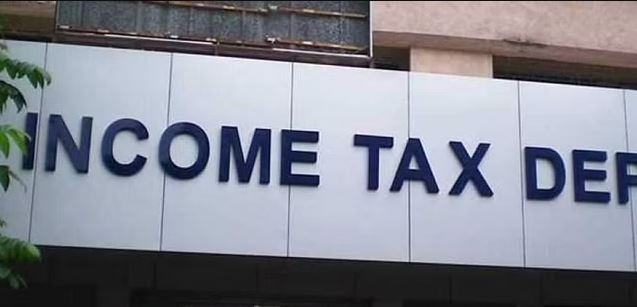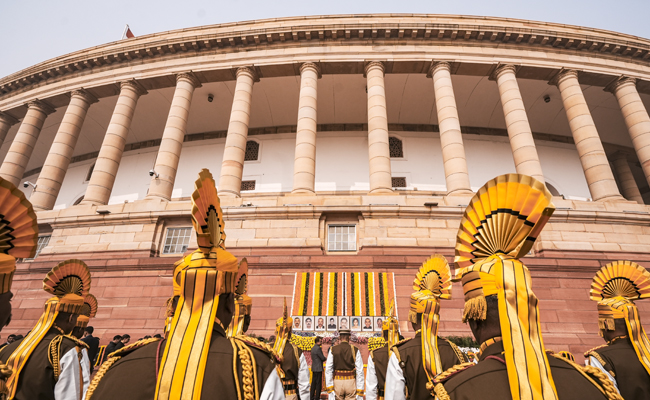Bengaluru, Jul 6: The Income Tax department Wednesday conducted searches at the premises of Bengaluru-based pharmaceutical company Micro Labs Ltd, the manufacturers of Dolo-650 tablet that was widely used by COVID-19 patients during the last over two years, on charges of alleged tax evasion.
Officials said the department is looking at financial documents, balance sheets and business distributor networks of the company as part of the searches.
The PTI has sent queries on the action to the company and a response is awaited.
Some other linked locations of the company in other cities and those of its promoters and distributors are also being covered, they said.
The company said on its website that it was engaged in the making and marketing pharmaceutical products and APIs (Active Pharmaceutical Ingredients) and has 17 manufacturing units across the country apart from conducting business overseas.
Its major pharma products are Dolo-650, Amlong, Lubrex, Diapride, Vildapride, Olmat, Avas, Tripride, Bactoclav, Tenepride-M and Arbitel.
Dolo-650, an analgesic (pain killer) and antipyretic (fever-reducing) was being prescribed by doctors and medical shop owners for coronavirus patients to reduce pain and fever, common symptoms caused by Covid.
In the words of the company, Dolo-650, is "virtually a household name across the country".
The company website showcased a news article, published in February, on its website that said: "The company has sold 350 crore tablets (of Dolo-650) since the Covid-19 outbreak in 2020, and earned revenues of Rs 400 crore in a year."
The CMD of the company, Dilip Surana, has been quoted in the story.
Let the Truth be known. If you read VB and like VB, please be a VB Supporter and Help us deliver the Truth to one and all.
New Delh (PTI) The Congress on Saturday said it is perhaps not very surprising that India is not part of a US-led strategic initiative to build a secure silicon supply chain, given the "sharp downturn" in the Trump-Modi ties, and asserted that it would have been to "our advantage if we had been part of this group".
Congress general secretary in charge of communications Jairam Ramesh took a swipe at Prime Minister Narendra Modi, saying the news of India not being part of the group comes after the PM had enthusiastically posted on social media about a telephone call with his "once-upon-a-time good friend and a recipient of many hugs in Ahmedabad, Houston, and Washington DC".
In a lengthy post on X, Ramesh said, "According to some news reports, the US has excluded India from a nine-nation initiative it has launched to reduce Chinese control on high-tech supply chains. The agreement is called Pax Silica, clearly as a counter to Pax Sinica. The nations included (for the moment at least) are the US, Japan, the Republic of Korea, Singapore, the Netherlands, the United Kingdom, Israel, the United Arab Emirates, and Australia."
"Given the sharp downturn in the Trump-Modi ties since May 10th, 2025, it is perhaps not very surprising that India has not been included. Undoubtedly, it would have been to our advantage if we had been part of this group."
"This news comes a day after the PM had enthusiastically posted on his telephone call with his once-upon-a-time good friend and a recipient of many hugs in Ahmedabad, Houston, and Washington DC," the Congress leader asserted.
The new US-led strategic initiative, rooted in deep cooperation with trusted allies, has been launched to build a secure and innovation-driven silicon supply chain.
According to the US State Department, the initiative called 'Pax Silica' aims to reduce coercive dependencies, protect the materials and capabilities foundational to artificial intelligence (AI), and ensure aligned nations can develop and deploy transformative technologies at scale.
The initiative includes Japan, South Korea, Singapore, the Netherlands, the United Kingdom, Israel, the United Arab Emirates, and Australia. With the exception of India, all other QUAD countries -- Japan, Australia and the US -- are part of the new initiative.
New Delhi will host the India-AI Impact Summit 2026 on February 19-20, focusing on the principles of 'People, Planet, and Progress'. The summit, announced by Prime Minister Narendra Modi at the France AI Action Summit, will be the first-ever global AI summit hosted in the Global South.
Prime Minister Modi and US President Trump on Thursday discussed ways to sustain momentum in the bilateral economic partnership in a phone conversation amid signs of the two sides inching closer to firming up a much-awaited trade deal.
The phone call between the two leaders came on a day Indian and American negotiators concluded two-day talks on the proposed bilateral trade agreement that is expected to provide relief to India from the Trump administration's whopping 50 per cent tariffs on Indian goods.
In a social media post, Modi had described the conversation as "warm and engaging".
"We reviewed the progress in our bilateral relations and discussed regional and international developments. India and the US will continue to work together for global peace, stability and prosperity," Modi had said without making any reference to trade ties.





